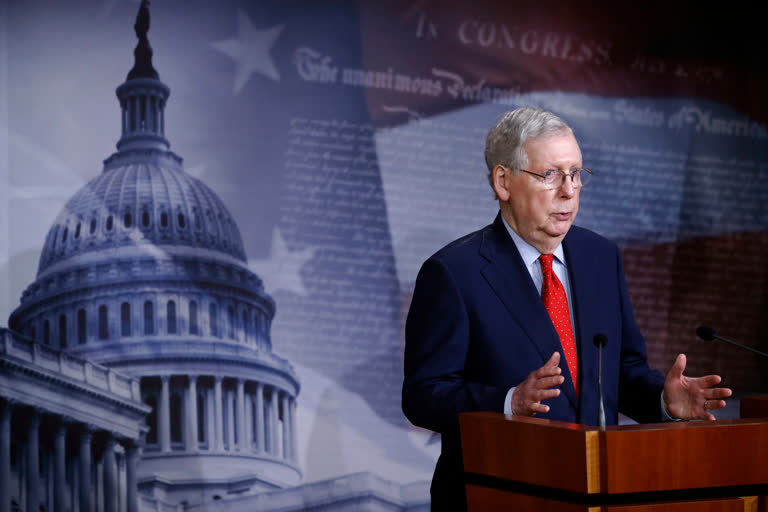Washington:Congress is sprinting to approve the next coronavirus aid package, a $483 billion deal backed by the White House to replenish a small-business payroll fund and pump more money into hospitals and testing programs.
President Donald Trump is urging swift passage this week. The Senate approved the bill Tuesday and the House planned a vote on Thursday.
The bipartisan bill, Washington's fourth in response to the crisis, is not expected to be the last as lawmakers take unprecedented steps to confront the virus and prop up communities nationwide amid the health crisis.
Most of the funding, $331 billion, would go to boost a small-business payroll loan program that ran out of money last week. There would be $100 billion for health care, with $75 billion to hospitals and $25 billion to boost testing for the virus, a key step in building the confidence required to reopen state economies. There is $60 billion for small-business loans and grants.
What started as a Trump administration effort with Republicans to bolster the government's small-business Paycheck Protection Program quickly doubled in size, second only to the nearly $2 trillion coronavirus rescue package that became law last month.
As negotiations dragged on, Democratic demands for additional funds for hospitals and virus testing in the states became more pressing, and eventually gained support from Republicans.
Senate Minority Leader Chuck Schumer said the bill was made better and broader by the effort from Democrats.
Read more:Trump proposes 3-phased country reopening plan
Of the $25 billion for increased testing efforts, at least $11 billion goes to state and tribal governments to detect and track new infections. The rest will help fund federal research into new coronavirus testing options.
Currently, the US has tested roughly 4 million people for the virus, or just over 1% of its population, according to the COVID Tracking Project website.
While the White House says the US has enough testing to begin easing social distancing measures, most experts say capacity needs to increase at least threefold, if not more.
As announced Tuesday, the centrepiece of the deal remains the small-business payroll program. It provides forgivable loans so shops can continue paying workers while businesses remain closed for social distancing and stay-at-home orders.
Launched just weeks ago, the paycheck program quickly reached its lending limit after approving nearly 1.7 million loans. That left thousands of small businesses in limbo as they sought help.
Controversies dogged its rocky roll-out and Democrats highlighted the number of smaller and minority-owned shops missing out on the aid. A number of publicly traded, big-name corporations also received loans, drawing complaints and Trump's vow that some will be asked to return the money.
As part of the new agreement, $60 billion or so has been set aside for and divided equally among smaller banks and community lenders, a nod to neighbourhoods and rural areas underserved by banks.
